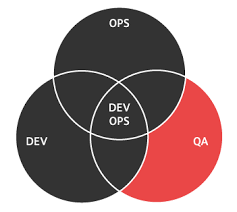Quality Assurance (QA) and DevOps are two concepts that go hand-in-hand, but sometimes people don’t understand exactly how they interact with each other or what their relationship really is. Some believe that QA and DevOps are related, but not connected in any particular way; others think of them as the same thing with different names. But actually, these concepts have very specific definitions and roles in the world of IT.
Table of Contents
Why it makes sense to talk about these two in the same breath?
Many folks believe that these two terms are in conflict with each other. That’s not true.
Here’s why: Both quality assurance (QA) and dev ops teams work together to make sure products are released successfully, whether that means keeping bugs out of software or making sure there are no snags when deploying infrastructure changes.
But before you start working hand-in-hand, you first need to understand how each team works within your organization—and what their responsibilities are relative to one another. Below, we break down some of the basics for both QA and devops roles. Let’s start with QA…
Why QA people should be familiar with DevOps?
Some QA people worry that their role will change, or even disappear, with DevOps. At some organizations, that’s true.
But more often than not, QA can actually benefit from a DevOps approach because it helps you to have a better handle on your testing from an efficiency perspective as well as an effectiveness perspective.
It’s definitely true that quality cannot be delivered without some level of automation testing. However, automation doesn’t replace manual testing; it augments it by speeding up certain processes—and by improving test coverage so defects are found earlier in the process.
We know we need both, but which is more important?
There are many people who believe that achieving quality in custom software development means focusing all of your resources on QA, while others maintain that there’s no such thing as a complete enough quality check until it’s been done by users.
In my opinion, having a quality-centric mindset doesn’t mean doing one or the other—it means having both QA and UX/DevOps working hand-in-hand to continuously strive for quality. One isn’t more important than another—they’re equally critical parts of maintaining successful products.
I also think it’s important to note that some companies seem to think they can achieve quality after they’ve shipped their product, which could not be further from the truth.
Let’s talk about what makes them different
Different roles, different skill sets, different goals. At their most basic level, QA professionals focus on finding errors within a system or application.
Sometimes it’s low-level (such as testing if an application can connect to a database) and sometimes it’s high-level (testing user experience). They care about how anything works, not about why it works.
On the other hand, developers care about why something works in addition to how it works; when they identify problems with the functionality or design of an application they know where in code to look.
This distinction gives us some insight into what each role looks for in testing—the QA professional makes sure that something happens while the developer makes sure that something happens well.
How does each discipline inform the other?
Each discipline informs the other in ways that are obvious but also less evident. QA professionals often take a human-centric approach to understand their users’ needs, which makes them well suited to think about users from a product development perspective.
Conversely, developers often spend so much time thinking about code that they lose sight of how it should actually be consumed by customers.
For these reasons and more, each discipline brings critical information to teams where these two disciplines intersect. There’s no need for developers and testers to work in silos; everyone on an agile team should be working together towards common goals.
Let’s talk about how they are related.
DevOps and quality assurance have a strong relationship. The idea of testing does not exist on its own, it only exists within DevOps. In fact, without testing, you would have no way to guarantee product quality.
There’s also an interesting correlation with QA being a core part of product development rather than something that happens towards the end of a project before launch; instead, it becomes an ongoing practice that includes checking code as it’s developed so that bugs can be addressed in real-time (and not after).
It’s called continuous integration/continuous delivery. This requires close collaboration between QA professionals, developers, and others on your team who are equally invested in seeing your product succeed.
Where do I learn more about each one individually?
Two of today’s most hotly debated topics in technology are software quality assurance (QA) and DevOps. Having a good understanding of both can go a long way toward helping organizations ship quality products on time, with fewer bugs and lots of positive customer feedback.
Where do I learn more about how they interact with each other?
Quality assurance (QA) deals with how to make sure you have a high-quality product, writes John P. Walsh in The relationship between DevOps and QA. DevOps helps get there by delivering features more quickly, automating testing, creating environments that are easier to maintain, reducing risk to users, freeing up developers for more valuable work—and a whole lot more. They complement each other perfectly. The two functions intersect in many different ways.
Software Testing, Automation Testing
One of the key elements of DevOps is quality assurance, which falls into a broader category of testing. It’s true that automation testing services plays a vital role in DevOps, but it’s just one piece of a larger puzzle. The entire focus on QA has to shift towards streamlining processes; otherwise, teams will only get more mired in the process than they already are. Automation can serve as part of an overall improvement strategy—but nothing more than that.

